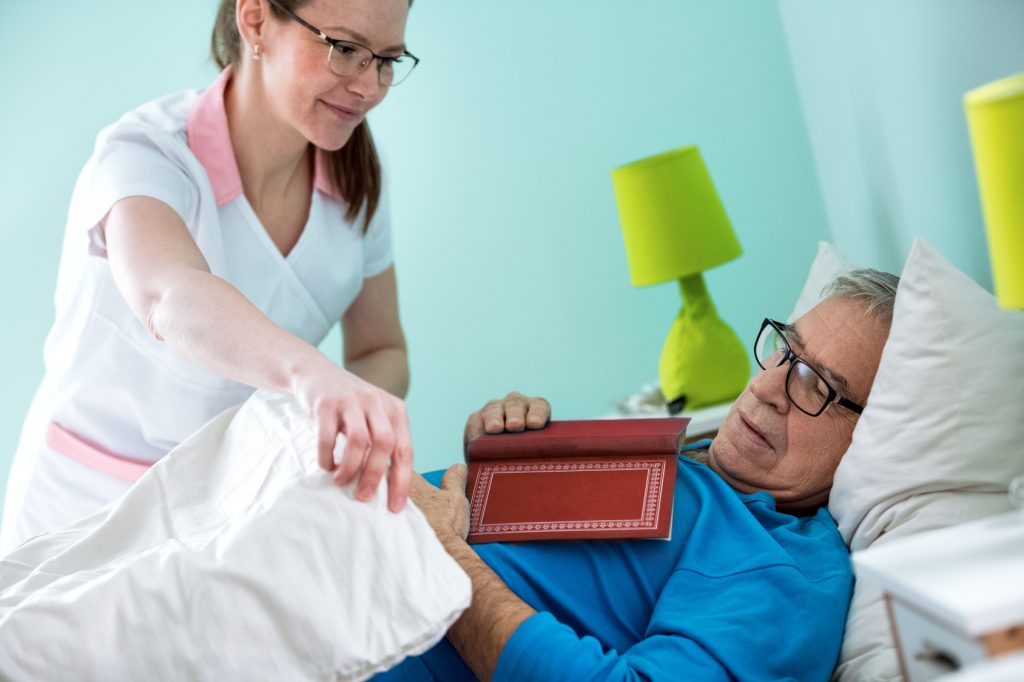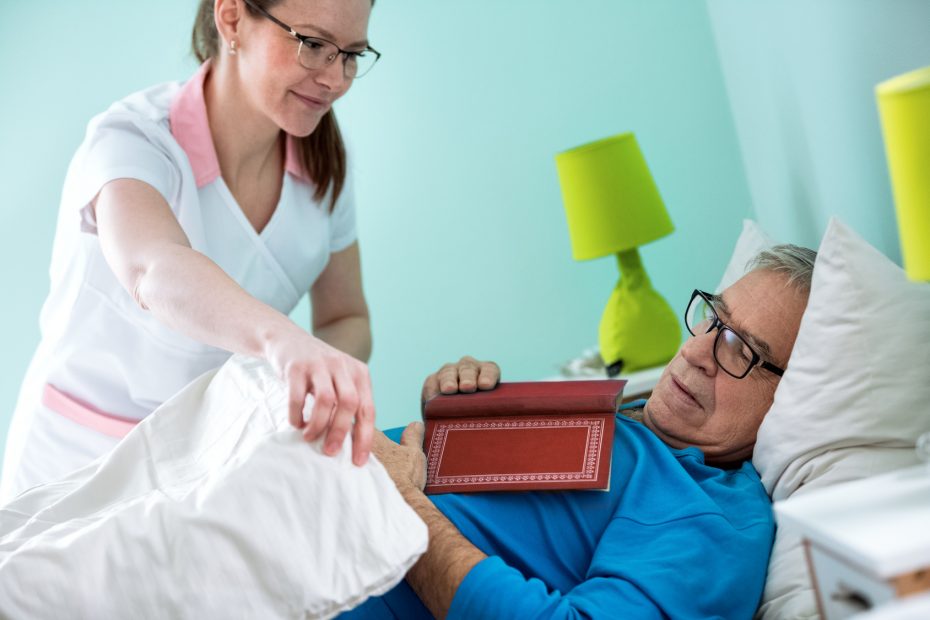
Aging adults are least likely to get sick from influenza; however, when a senior does come down with the flu, it is particularly dangerous and life-threatening. Influenza vaccines, as a result, are a priority for the older demographic. Here are various ways to protect seniors from the flu.
The Centers for Disease Control reported findings published in Clinical Infectious Diseases. The study found that people aged 65 and older got sick from the flu at a median rate of 3.9 percent; for adults aged 18-64, the rate was 8.8 percent; for children, the attack rate was 9.3 percent.
Although seniors are less likely to catch the influenza virus, they are more likely to suffer from severe flu-related complications. Pneumonia is the most serious complication that can result from a flu virus infection. The flu can also trigger a number of additional serious complications.
Inflammation of the heart, brain, or muscle tissues is the possible outcome of being infected by the influenza virus. Multi-organ failure, including kidney failure, can occur. Sepsis may develop as the body responds to infection. Chronic medical problems, like asthma and heart disease, may worsen.
Less obvious risks to people 65 and over include the increased risks for heart attack and stroke within the first two weeks of a flu infection. The risk remains high for several months. Consequently, for older adults, these factors increase their risk of dying from the flu and flu-related complications.
- Get a flu vaccine
 The annual influenza vaccine is the first line of defense against the flu. Each year, the flu virus is different, so yearly flu vaccinations are essential to protect against the changing viruses. Flu vaccines are updated seasonally, so vaccinated seniors can be assured they are fully protected every season.
The annual influenza vaccine is the first line of defense against the flu. Each year, the flu virus is different, so yearly flu vaccinations are essential to protect against the changing viruses. Flu vaccines are updated seasonally, so vaccinated seniors can be assured they are fully protected every season.
Timing is critical. Seniors are advised to get the flu vaccine at the start of flu season; September or October are ideal months for older people to be vaccinated. Avoid early vaccinations, such as in July or August since immunity decreases quickly in the elderly.
Two influenza vaccines are designed for the older demographic. A high-dose flu vaccine is linked with a stronger immune response. Similarly, the adjuvanted flu vaccine creates a higher immune response in seniors, in comparison to the standard dose flu vaccine.
- Avoid close contact
The influenza virus can quickly spread, making it important for seniors to avoid close contact with people who are sick with the flu. Infectious respiratory droplets are spread through sneezing, coughing, and talking; seniors must stay at least six feet away to stay protected.
- Clean and disinfect
Less commonplace, older people can become sick by touching a surface infected with the influenza virus and then touching their eyes, nose, or mouth. As germs can spread from infected surfaces, caregivers should remind seniors to avoid touching their faces.
Viruses remain viable on surfaces for lengthy periods, making it important for caregivers to clean and disinfect the senior’s living areas regularly. Cleaning removes dirt and grime; disinfection kills germs. Both are needed to protect the aging person from picking up the flu virus from contaminated surfaces.
- Practice hand hygiene
Handwashing with soap and water removes germs. The Covid-19 pandemic has instilled the habit of handwashing in the majority of people. Continuing this practice in the post-pandemic era protects seniors from bouts of the flu. Alcohol-based sanitizer is a recommended substitute when soap and water are unavailable.
Viruses survive on various surfaces, like doorknobs, elevator buttons, and tables, for two hours or more. Considering this fact, seniors who aim to avoid the flu should wash their hands several times a day. Effective hand hygiene includes rubbing hands together for at least 20 seconds with soap and water.
For detailed practice on hygiene care, reference Personal Hygiene Checklist for the Elderly.
- Eat nutritiously

Healthy lifestyle habits, like eating balanced meals, ward off the flu. Caregivers should offer seniors fruits loaded with vitamin C, like oranges and tangerines, on a daily basis. Prepare broccoli and spinach, which provide essential nutrients. Poultry contains antioxidants that fight off infection.
- Get quality sleep
A good night’s rest will not prevent the flu, but it will reduce the risk. Without quality sleep, the body has a lower resistance to illness. Poorer immune function is an adverse outcome of sleep deprivation. Overnight caregivers must thereby create an environment that promotes quality sleep throughout the night.
- Exercise
Exercising is another healthy lifestyle habit that has been shown to offer anti-influenza benefits. While reducing the flu risk, physical activity also increases the rate of flu vaccine efficacy. Caregivers should encourage seniors to regularly engage in moderate exercises as a flu prevention tactic.
Caregivers who notice symptoms of the flu, such as fever, coughs, chills, headaches, and fatigue, must call the senior healthcare provider immediately. Antiviral drugs can be prescribed to help prevent flu-related complications and treat influenza symptoms. Medications work best when started early.
Families often struggle to keep up with elderly loved ones’ daily care needs. Assisting Hands Home Care is the ideal solution for constant, quality care. Our home care agency is a recognized leader for dependable live-in care and 24-hour care. We give seniors continual care and attention.
Whether your loved one has the flu or suffers from a chronic condition, she will benefit from our 24-hour care or live-in care. During multiple shifts, professional caregivers supervise the senior 24 hours a day and meet all nonmedical care needs. Live-in care includes a sleeping break without supervision.
Depending on the senior’s medical condition, either care option is practical. Assistance with both types of care includes help with personal hygiene tasks, like bathing, grooming, and dressing, as well as meal preparation, light housekeeping, transportation services, and medication reminders.
Choose Assisting Hands Home Care for compassionate support in the comfort of home. Our flexible services meet the care needs of countless seniors in Matteson, Illinois, and the surrounding communities. Call (708) 880-7711 to schedule an in-home consultation and start on a path to greater well-being.
















